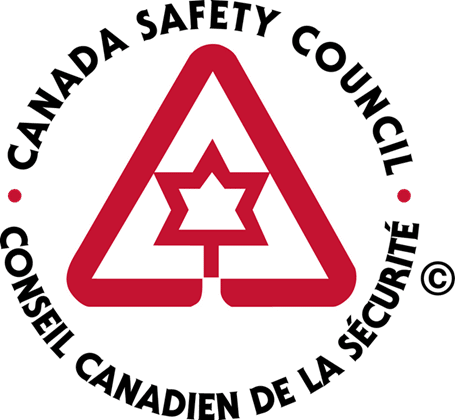Home is an important place for everyone and even more so for people with Alzheimer’s disease and other dementias. A familiar environment can help a person connect with the past and maintain a sense of who they are.
This National Senior Safety Week, November 6 to 12, the Canada Safety Council and the Alzheimer Society of Canada, would like to provide families and caregivers a list of home safety tips to make their home safe and dementia-friendly.
People with dementia can become lost even in familiar places so it’s important to strike a balance between safety and independence.
Home Safety Tips
- Have fire extinguishers, smoke detectors and carbon monoxide detectors tested regularly to make sure they’re working.
- Use appliances that have an automatic shut-off feature and keep them away from sinks and other sources of water.
- Use child-proof locks and doorknob covers on drawers and cupboards that contain dangerous materials such as knives, cleaning liquids and appliances.
- Store dangerous equipment like grills, lawn mowers, power tools, knives and firearms in a secure place.
- Lock any hazardous areas or cover the doors or locks so that they’re disguised. Place locks either high or low on doors to make them less obvious.
- Remove locks in bathrooms or bedrooms to prevent the person with dementia from being locked inside.
- If you’re concerned about someone using the stove, install a hidden gas valve or circuit breaker that prevents it from being turned on. Consider removing the knobs from the burners.
- Remove all toxic plants or decorative fruits that the person might mistakenly try to eat.
- Remove all medications or other substances from open areas such as the kitchen table and counters, including vitamins and prescription drugs. Even sugar, sugar substitutes and seasonings may pose a risk to the individual. Keep medications in a locked area.
- Supervise the person when using tobacco or alcohol as these may have harmful side effects and interact with certain drugs. Always supervise the person with dementia if they’re a smoker. They may forget a burning cigarette and start a fire.
- Check the temperature of water and food as the person may have difficulty telling the difference. This applies to bath water and hot food.
- Install safety equipment in the bathroom. Grab bars for example help prevent falls.
- Add non-slip stickers to slippery surfaces such as tile floors and loose rugs. Or remove rugs completely.
- Use contrasting colours at the beginning of a staircase, for example, make steps and transitions easier to see. Avoid dark rugs as they may appear to be a hole.
- Install good lighting at entries, outside landings, between rooms, on stairways and in bathrooms.
- Keep emergency numbers by the phone for quick access.
- Remember that symbols like skull, crossbones, “toxic” and “poison” lose their meaning.
- Consult an occupational therapist for additional safety tips on how to make your home as safe and accommodating as possible.
- Some areas of your home may pose more risks than others. Pay extra attention to garages, work spaces, basements and outdoor areas.
|
Canadians living with Alzheimer’s disease and other dementias
Today, 747,000 Canadians are living with Alzheimer’s disease and other dementias – that’s 14.9 per cent of Canadians 65 and older. By 2031, this number is expected to increase to 1.4 million. As of 2015, 47.5 million people worldwide were living with dementia, or more than the total population of Canada.
Source: Alzheimer Society of Canada
|
MedicAlert® Safely Home®
Consider registering the person with dementia with MedicAlert® Safely Home®. This is a bracelet identification program that helps emergency responders identify the person who is lost and return them safely home.
Dementia Friends Canada
Another way to help keep people with dementia safe in the community is to become a Dementia Friend. Visit www.dementiafriends.ca, watch a short video on what it’s like to have dementia, register and commit to an action. A joint initiative of the Alzheimer Society and Government of Canada, Dementia Friends Canada is designed to increase awareness about dementia and turn that knowledge into practical actions to improve day-to-day life for people with dementia.
Community resources
Whether you’re a family caregiver, paid caregiver or volunteer, caring for someone with dementia can be overwhelming at times. There are many agencies and services in your community that can help you in your role while taking care of your own well being. Find these through:
- Your local Alzheimer Society
- Your family doctor, health clinic or social worker
- Local public health department
- Community organizations
- Your friends, family and neighbours
About the Alzheimer Society of Canada
The Alzheimer Society is the leading nationwide health charity for people living with Alzheimer’s disease and other dementias. Active in communities across Canada, the Society offers help for today through our programs and services, and hope for tomorrow by funding research into the cause, prevention and a cure.
To learn more or find an Alzheimer Society near you, visit www.alzheimer.ca
About the Canada Safety Council
The Canada Safety Council is an independent, knowledge-based, charitable organization dedicated to the cause of safety. We provide national leadership in safety through information, education and collaboration. We are Canada’s voice and resource for safety.
-30-
For more information, please contact:
Lewis Smith Rosanne Meandro
Communications and Media Program Coordinator Media Relations
Canada Safety Council Alzheimer Society of Canada
(613) 739-1535 (ext. 228) (416) 416-857-8920
